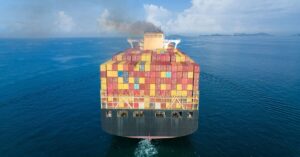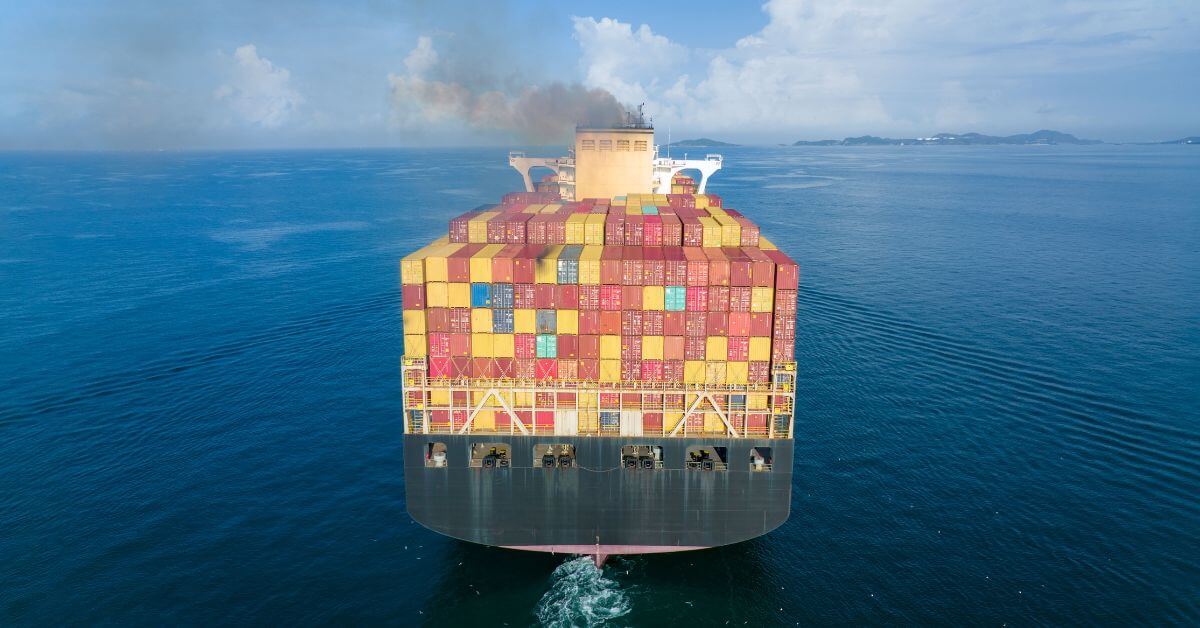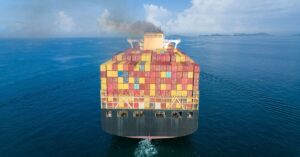
Fire Erupts On Vessel Under Repair At Goa Shipyard, 2 Dead & 4 Critically Injured
October 18, 2025
Tanker Catches Fire After Being Hit By Projectile In Gulf Of Aden
October 18, 2025

The International Maritime Organisation (IMO) has voted to postpone the adoption of its landmark Net-Zero Framework by one year, which includes the world’s first global carbon pricing mechanism for international shipping, after failing to reach consensus amid increasing political pressure from the United States and other oil-producing countries.
The decision was made on Friday, 17 October 2025, during an extraordinary session of the Marine Environment Protection Committee (MEPC), which was convened from 14 to 17 October in London to consider draft amendments to MARPOL Annex VI.
The proposal to delay was put forward by Saudi Arabia and supported by Singapore. It passed by a simple majority, with 57 countries voting in favour of the delay, 49 opposing it, and 21 abstaining.
The decision is seen as a setback for countries such as the European Union, Brazil, India, China, Japan, Canada, the United Kingdom, and the Republic of Korea, which had supported the immediate adoption of the framework. These countries viewed it as a key step towards reducing emissions from global shipping.
In contrast, the United States and Saudi Arabia led efforts to oppose the move, arguing that the measure would place an unfair financial burden on global trade. Both countries are among the world’s largest oil producers.
According to several delegates, Washington exerted diplomatic and economic pressure on other states ahead of the vote. Per reports, the Trump administration had threatened to impose tariffs and sanctions on countries supporting the framework, particularly developing and climate-vulnerable nations. Some representatives described this as “bullying”, “unprecedented”, and “undiplomatic”.
U.S. President Donald Trump had publicly urged IMO member states to reject the carbon pricing proposal, calling it a “global green new scam tax on shipping”. He stated on Truth Social that the United States would not comply with such a measure “in any way, shape or form”.
The Net-Zero Framework (NZF) was approved in principle at MEPC 83 in April 2025 as a new Chapter 5 of the Draft Revised Annex VI of the MARPOL Convention. It sets international regulations to reduce greenhouse gas (GHG) emissions from ships complying with the IMO’s 2023 GHG reduction strategy.
The framework was initially scheduled to enter into force by March 2027. However, that timeline will now need to be reviewed following the one-year postponement.
During the session, the United States and Saudi Arabia also proposed changing the IMO’s usual “consensus” adoption procedure to an “explicit” process, which would add extra procedural steps and make it harder for some developing countries to adopt the framework later.
Environmental groups expressed concern over the outcome. Faig Abbasov, shipping director at Transport & Environment, said the delay leaves the maritime sector “adrift in uncertainty”.
IMO Secretary-General Arsenio Dominguez, in his closing remarks, cautioned delegates not to see the result as a success, saying there were still issues that needed to be addressed before final approval.
Although the extraordinary session has been adjourned for one year, technical work on implementing the framework will continue. The Intersessional Working Group on the Reduction of Greenhouse Gas Emissions from Ships (ISWG-GHG-20) will meet from 20 to 24 October 2025 to work on guidelines for implementing the framework, including incentive schemes and revenue distribution.
The IMO confirmed that the MEPC will meet again in 12 months to reconsider the proposal and seek wider agreement among its 176 member states.
Global shipping contributes nearly 3% of global CO₂ emissions and handles about 90% of world trade. Without a clear emissions plan, experts warn that pollution from the sector could continue to rise.
References: IMO, Reuters
Source: Maritime Shipping News


